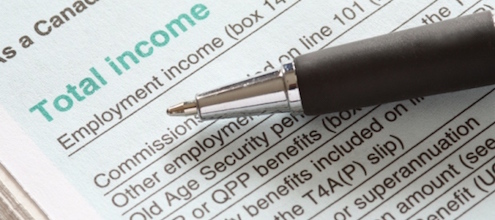
Case for Using Revenue from a Carbon Tax to Reduce Existing Taxes
by Ken McKenzie
Our next report will explore the challenges and opportunities with different approaches to recycling revenues from carbon pricing. To better understand the trade-offs associated with each revenue recycling option, we commissioned a set of six papers authored by some of Canada’s leading policy thinkers. What are the advantages of each option? Under which conditions do they work best? Our new Revenue Recycling blog series provides a glimpse into some of these difficult questions, voiced first-hand by the authors of each paper.
In a forthcoming paper for the Ecofiscal Commission, I present the case for using all, or substantially all, of the revenue raised from a carbon tax to reduce existing taxes. This means that the carbon tax should be “revenue neutral” in the sense of generating no new net revenue for the government.
The case for recycling the revenue from a carbon tax to reduce existing taxes is based on three arguments, two economic and one political. The first economic argument is that there is no compelling reason why the size of the government sector should expand in conjunction with the introduction of a carbon tax. The tax system as a whole, including a carbon tax, should be designed to raise a given amount of revenue in the most efficient and equitable manner possible. The overall size of the government sector—what that given amount of revenue is—should be determined largely independently of the design of the tax system. Moreover, the precise manner in which tax revenue is spent should also be determined independently of the source of the revenue. If we want to spend money on infrastructure, to encourage and subsidize innovation into green technologies, or whatever, the case needs to be made on the merits of those expenditures, and not tied to the introduction of a carbon tax. In sum, the size and composition of the government spending should be considered independently of the overall structure of the tax system, including a carbon tax.
The second economic argument for recycling the revenue back to taxpayers is that existing taxes impose costs on the economy well in excess of the amount of revenue raised. For example, research indicates that raising one more dollar in revenue by increasing the federal corporate income tax imposes an economic cost of $1.71. The costs of provincial taxes are even higher. For example, research suggests that the economic cost of raising an additional dollar in revenue by increasing the top personal income tax rate in Ontario may be as high as an astounding $6.76! It turns out that the imposition of a carbon tax will exacerbate these costs, raising the economic costs of taxation even more. And it works both ways—using a dollar in revenue from a carbon tax to incrementally reduce existing taxes generates social benefits in excess of a dollar. This means that alternative uses of the revenue generated by a carbon tax must pass a substantial cost-benefit test when compared to the benefits of reducing existing taxes: the social benefit of spending an incremental dollar raised by a carbon tax must exceed the social benefit of reducing existing taxes. It is incumbent upon proponents of using carbon tax revenue for these purposes to provide justifications along these lines.
The final argument for revenue neutral recycling is “political.” The political conditions required to establish a coalition of interests in support of introducing a carbon tax would appear to be more easily met if it is de-linked from the debate of how big government should be, or how the money should be spent; those concerned about the environment can support a revenue neutral carbon tax regardless of their stance on “big” vs. “small” government.
About the Author
 Ken McKenzie is a Professor in the Department of Economics and Distinguished Fellow in the School of Public Policy at the University of Calgary. His area of research is public economics, with an emphasis on taxation. He has received the Harry Johnson Prize for the best article in the Canadian Journal of Economics, and is a two-time recipient of the Douglas Purvis Memorial Prize for a published work of excellence relating to Canadian public policy.
Ken McKenzie is a Professor in the Department of Economics and Distinguished Fellow in the School of Public Policy at the University of Calgary. His area of research is public economics, with an emphasis on taxation. He has received the Harry Johnson Prize for the best article in the Canadian Journal of Economics, and is a two-time recipient of the Douglas Purvis Memorial Prize for a published work of excellence relating to Canadian public policy.
Revenue Recycling Blog Series:
1. Reducing existing taxes
2. Transferring revenue to households
3. Investing in clean technology
4. Investing in public infrastructure
5. Reducing government debt
6. Providing transitional support to industry




Comments are closed.